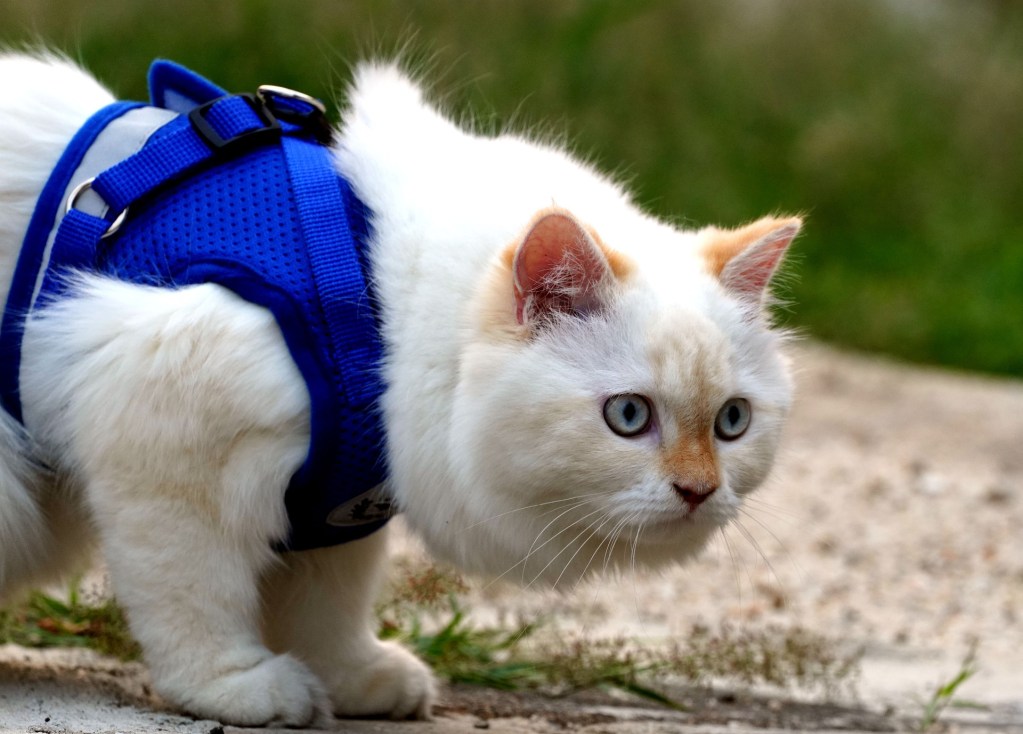Hiking is a fabulous activity. It gives you a chance to explore new locations, enjoy nature, and get plenty of fresh air. It also helps to keep you fit. All those benefits of hiking can also apply to your cat too — if he’s up for the adventure. Hiking with cats is an activity that’s becoming more and more popular and with good reason. Hiking not only is fun but can be an entertaining and exciting adventure for your cat too. It can help to prevent boredom, especially for an indoor-only cat. But before you hit the trails, it’s important to understand the pros and cons of hiking, as well as the type of preparation you’ll need. If you do your homework, you and your cat can enjoy many hiking adventures together.
Will my cat enjoy hiking?
Seven Hills Veterinary Hospital notes that preparation is key to a successful hiking trip with your cat, but it’s also important to understand that hiking isn’t for every cat. Cats who are skittish and who don’t tend to enjoy new adventures will probably be happier at home than on the trails. With a gradual introduction to walking on a leash and hiking, your cat may decide she enjoys this new activity.

How can I prepare for hiking with my cat?
It’s important to do plenty of preparation to keep your cat safe before you go hiking together. If you think that your cat would enjoy hiking, Seven Hills Veterinary Hospital suggests you schedule an appointment with your vet to make sure your cat is healthy and ready for the experience. Your vet can verify that your cat’s vaccinations are up to date and that he is on an appropriate parasite prevention plan. It’s also a great idea to microchip your cat, just in case he should get lost on the trail.
Hiking with your cat can be a fun activity for both of you, but it’s important to gradually get your cat used to the idea of heading out on the trails.
What are the risks when hiking with a cat?
According to Seven Hills Veterinary Hospital, hiking may or may not work for your cat. Some risks are involved, especially when it comes to your cat potentially getting frightened and escaping, and it’s important to be prepared for the challenges you’ll face on the trail, including parasites like ticks, issues like heat, and the possibility of bad weather. With plenty of planning, though, you and your cat should be able to enjoy hiking trails safely.

How do I train my cat to hike?
Adventure Cats explains that you’ll need to do plenty of preparation before you take your cat on her first hike. That preparation starts with teaching your cat to wear a harness and to walk on a leash. You’ll need to start leash training your cat at home, then get her used to walking on a leash in unfamiliar surroundings. It’s also important to teach your cat to come when called, just in case you ever get separated while on a hike.
In addition to a quality harness and leash, your cat should wear an ID tag with your contact information.
Do a little research before your first trip. Make sure you choose a trail that’s appropriate for your fitness level and start with short hikes so your cat has a chance to get used to the experience. Also be sure to check the weather, since neither you nor your cat will appreciate getting caught in the rain.
It’s also important to bring along snacks and water for both you and your cat. Once you’re on the trail, take plenty of snack breaks and make sure your cat is comfortable during the experience. While your cat may walk part of the way, be prepared to pick him up and carry him as needed. Your cat will likely feel more secure and confident from the higher vantage point he’ll enjoy from your arms or shoulders.
Just like any new activity, hiking with your cat will take a bit of time to get used to. You’ll want to start small. Stick to trails you know well, keep your outings brief, and focus on making the hike an enjoyable experience for your cat. Consider connecting with other people who hike with their cats for additional advice. Most important, be patient with your cat, both during the leash-training process and as your cat gets used to being out on the trail. If you take your time and keep things positive, you might have a whole new activity you and your cat can enjoy together.


